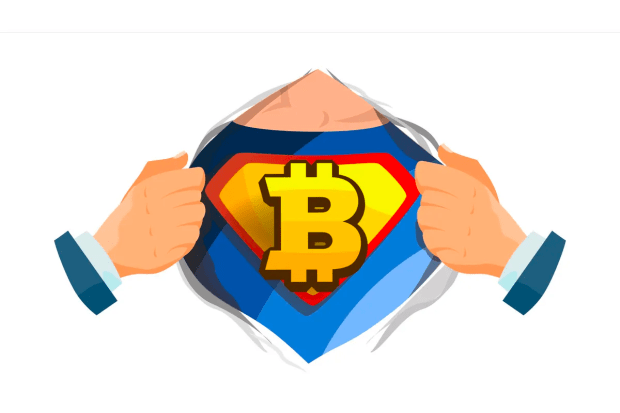After discovering Bitcoin, an elementary music teacher can see that some poor parenting habits are incentivized by the fiat system.
This is an opinion editorial by Tim Niemeyer, co-host of the Lincolnland Bitcoin Meetup and an elementary school teacher.
I’m a teacher by day and a rabid Bitcoiner by night. I currently teach elementary music, and I truly love my job. It’s similar to being the co-host of Lincolnland Bitcoin in that I get to share my passions (music and Bitcoin) while potentially helping others develop a deeper appreciation for and better understanding of each. I don’t orange pill at school though; I feel it’s necessary to separate church and state, if you will. Still, being able to experience both simultaneously has helped me be able to develop a greater understanding of each.
But appreciating Bitcoin has also given me a unique perspective in my work as a teacher, and I wanted to share some of observations I’ve made in almost two decades of being an educator about how our coercive fiat monetary system incentivizes less-than-optimal decision making and substandard relational habits… and maybe a little about how Bitcoin fixes this.
The purpose of this article is not to badmouth any specific group or subset of the population (maybe fiat politicians though, lol). Most everyone has justifications for their actions, and who am I to tell them otherwise? For what it’s worth, I believe the majority of parents are good, hard-working people who do their best with what they have to provide. It’s not their fault they’re compelled to be in a monetary system that steals their time and efforts via inflation, which forces high time preference actions. Many don’t see the benefits we Bitcoiners see to sound money that’s not controlled by the whims of those in power who have their own agendas and incentives. Furthermore, too few see that choosing red or blue or right or left doesn’t really provide long-term, systemic change due to the fact that each side is beholden to their inherent system.
Shall we?
Helicopter Parents
One observation I’ve noticed in the past few decades is the emergence of helicopter parents. WebMD lists the following signs of helicopter parenting: they fight their child’s battles, do their schoolwork, coach their coaches, keep their kids on a short leash, are a maid in their own house, play it too safe and can’t let their kids fail.
I believe most of these are a byproduct of living in a fiat system. When you have a system that allows humans to be in control of the money supply, it leads to them imposing their morals onto said money supply. Regardless of their intentions, the resulting societal byproduct is a tug-of-war system where each side is offering to solve more and more problems for their constituents. This leads to a paternal dynamic between the powerful and the powerless classes.
Politicians attempting to garner more control do so by “fighting their child’s battles” or the battles of the powerless. They “coach their coaches” by mandating further workplace requirements. They “keep their kids on a short leash” by continually attempting to restrict freedoms. They don’t “let their kids fail” by offering too many safety nets, which leads to a decrease in healthy risk taking and an increase in complacency. This modeling of helicoptering done by Big Daddy becomes a learned behavior by the lowly masses, which they in turn model for their children, which creates a vicious cycle of dependency.
Snowflake Kids
Helicopter parenting leads to snowflake children. Tifa Ong describes snowflake kids as overly emotional, sensitive and entitled. My take on overly-emotional and sensitive children is simply that they seem to not have had enough opportunities to fight their own battles and, at worst, get used to the process, and, at best, learn from it.
In my class, I (as well as many of my peers) teach “failing forward” where students are encouraged to take risks in order to learn from them and set the good habit of being a life-long learner. It’s like when we’re preparing for a music performance… many students will open up about nerves or stagefright. My stock answer is that the only way to get over it is to do it over and over again until that feeling becomes familiar; the unfamiliarity of the feeling is the source of anxiety.
Unfortunately, the students only spend a fraction of their time practicing failing forward. It’s fairly easy to see which students have had the opportunities to take risks and which have not. I believe those who do not yet have that skill set are the children of helicopter parents, the parents who have been more affected by systemic fiat externalities. When too many guardrails are implemented, kids become not only unwilling but unable to take risks. They feel they should be given all life has to offer without having to work for it. I believe this sense of entitlement is the effect of the trickling down of fiat’s unintended consequences.
Fiat systems allow for a top-down control system, which incentivises grown adults to suckle from the teat of the powerful, which diminishes their own authority and agency, which leads to a hierarchy of expecting the top end of the structure to provide for the bottom end, which leads to entitled children without proper role models to show them how to provide for themselves. The end result is a pattern of learned helplessness, which stems from us outsourcing our autonomy over our monetary system to equally-fallible humans.
If only there were a monetary system that just acts like a globally-connected, permissionless ledger — a ledger that is controlled by no one and accessible by everyone. One which doesn’t force moralistic hierarchies yet incentivizes voluntary cooperation. If only…
Proof Is In The Pudding
In my short five years in Bitcoin, I’ve noticed a complete shift change in how I parent. Truth street: I was a helicopter parent for my childrens’ formative years. While I may not have been as far out on the spectrum as some, I was susceptible to many of the characteristics previously discussed. I was quick to fight their battles, keep them on a short leash, play it too safe and not let them fail.
But that all changed when I started studying Bitcoin (notice I didn’t say “buying bitcoin”). Developing a lower time preference led me to see the benefit of allowing my children to learn from their mistakes; it wasn’t so much how they felt in the here and now but how they would be able to deal with future struggles having had the opportunity to experience conflict… provided there was proper support. I evolved a better sense of control over my own autonomy, which gave my children a role model for them to grow into the best versions of themselves. This is decidedly better than being dictated directions, thus developing dependency to a disconnected democracy.
The more we subjugate our decision making and willpower, the less we’ll have of each to lead future generations. Bitcoin allows all voluntary participants to opt out of the nonsense we’ve allowed ourselves to become accustomed to. Bitcoin incentivizes us to work hard toward long-term goals, respect each others’ self sovereignty, take calculated risks and normalize effort in the face of potential failure. Bitcoin incentivizes rationality and logical thinking and disincentivizes excessive emotionality and oversensitivity. By choosing to live in a system which respects value over time and value for value, Bitcoin obliterates the concept of entitlement. Granted, there are many other factors that contribute to all of this, but money touches every aspect of society. The lifestyle associated with Bitcoin is superior for developing along Maslow’s hierarchy of needs towards self-actualization. The fiat mindset, in comparison, is just elementary.
This is a guest post by Tim Niemeyer. Opinions expressed are entirely their own and do not necessarily reflect those of BTC Inc or Bitcoin Magazine.




